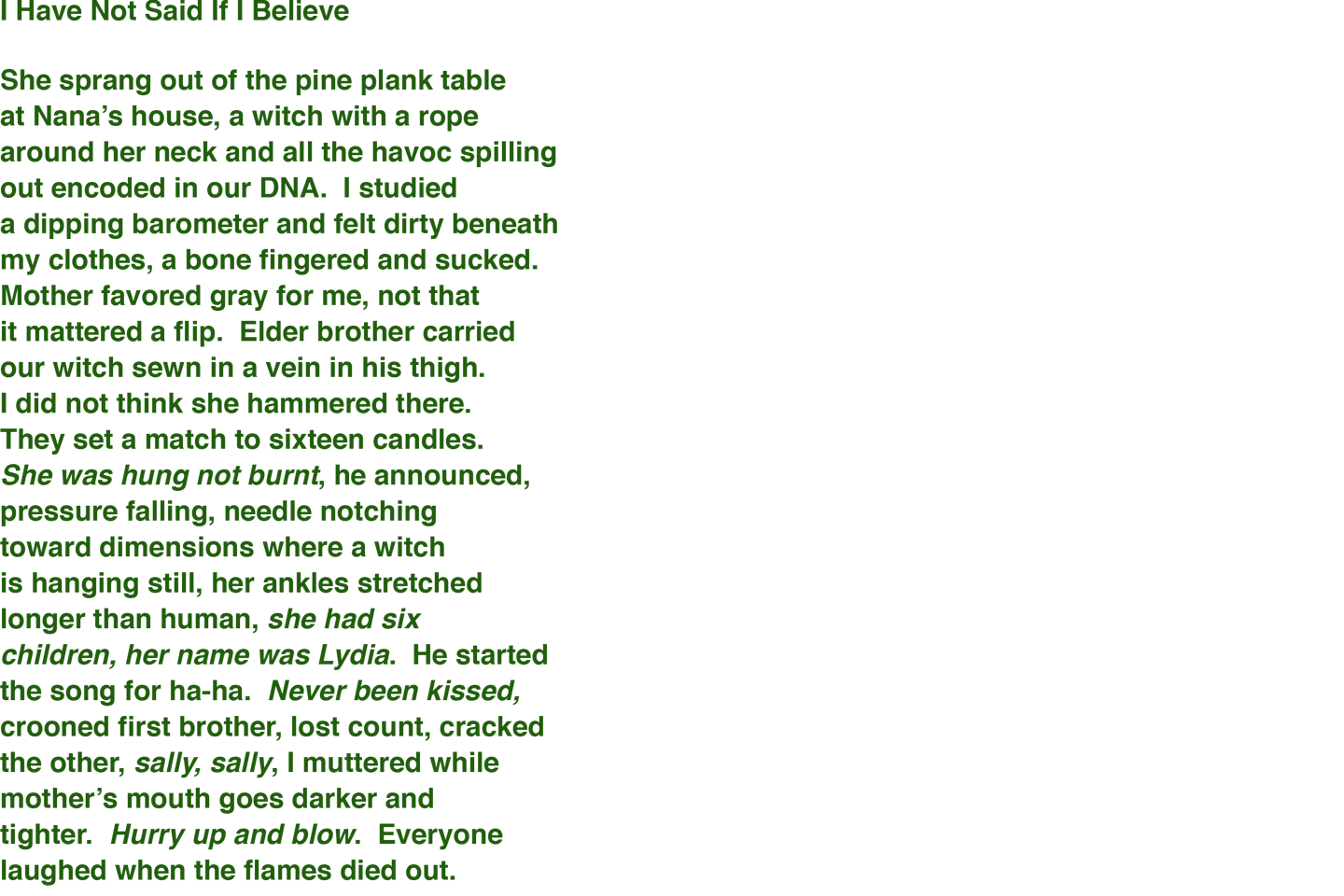Marsha De La O
4/13/2016
Three conversations with LA based, female poets
UCLA’s Campus Events Commission recently hosted “See, Recognize, Hear,” an empowerment week dedicated to acknowledging female artists and creatives. Consisting of various programs, March 3rd was devoted to a night of poetry. Los Angeles based poets, Lynne Thompson, Verónica Reyes and Marsha De La O each were present to give readings of their work. I was able to reach out to these three artists and discuss their creative processes, how they write and what role they think poetry plays in the world. The project developed into a short series; every few days or so the blog will be updated with a new dialogue and accompanying poem. Be sure to check back for new posts!
In the second post of the series, I spoke with poet Marsha De La O. In our interview we discussed the context of creativity and poetry's ability to communicate ideas that other writing styles cannot. Included is her poem, "I Have Not Said If I Believe."
SAG: How did you first become interested in poetry?
MD: I took a writing workshop for women and there was no pressure to put anything into form. We were working with psyche, however inchoate. It was not product-oriented at all. The workshop leader suggested that I take some of my work to a poetry reading and read it aloud, and I was shocked and disbelieving. But then I did, and the multiplicity of the world of poetry opened to me. I pursued participating and listening and reading widely, and saw the need for more education. I had a writer-friend who suggested an MFA program and I followed up, and ultimately had the most powerful educational experience of my life there in the Vermont College MFA program.
Have you always been a writer?
I wanted to be a writer when I was a child, but by the time I graduated from college I was a disconnected and disempowered person and I had no idea how to pursue writing. I became a bilingual teacher which is an all-encompassing job and worked in that profession for most of my life. It is only now that the opportunity to be a writer has truly opened for me. You could say that being a writer was in me from the beginning, though.
Does memory influence your work at all? What about your surroundings?
Memory, dreams, obsession, imagination, the earth underfoot, the mountains that slice the LA basin, all of it influences the work. I’m attaching a poem that is a memory of my sixteenth birthday which occurred about the time my brother was investigating family history and discovered that one of our ancestors had been executed as a witch in Connecticut. However, I do want to say there is no one-to-one connection between poetry and the facts of the past. I think it was Machado who said, If you want to write a poem, first you must invent a poet.
Do you have a writing routine? How do you know when to start and when to stop?
I wish I were one of those disciplined types who give the exact same three to four hours every day, but I’m more erratic. I often avoid writing with various stratagems. I have to bring myself to my empty office with my empty mind and stay until something happens.
You publish a poetry journal called Askew, what inspired you to start this project?
My husband Phil Taggart was the Poetry Editor for an art magazine called ArtLife. It ceased publication and he still wanted to bring poetry into the world so I suggested we start a journal, which he wanted to call Askew, and then I thought of that great Emily Dickinson quote as an epigram, Tell all the truth, but tell it slant.
Do you think poetry can communicate ideas that other writing styles cannot?
Oh yes, it has density, flexibility, alchemical possibilities, and a relationship to charms and hexes. It’s also an ancient art; when we speak poetry we’re speaking in the ancient ways.
You recently took part in a poetry reading at the Student Committee for the Arts’ Word on Wednesdays, what are your thoughts on the “See, Recognize, Hear” female empowerment movement?
“See, Recognize, Hear” is a deeply powerful idea and I am so happy that I could be part of one segment of it. When I realized the scope, I was just sorry that I wouldn’t have the opportunity to attend all of them. I am grateful for its emphasis on the body, on experience, on what we see and hear, which is an opening of possibility.


